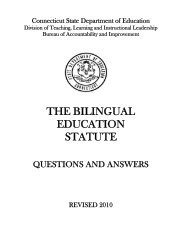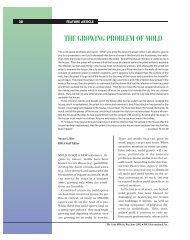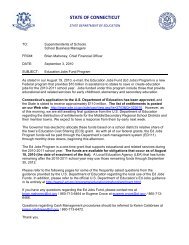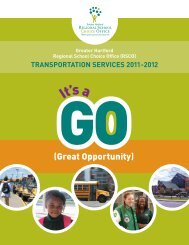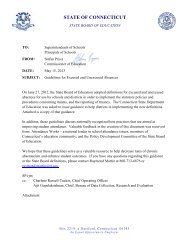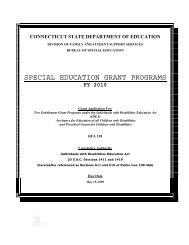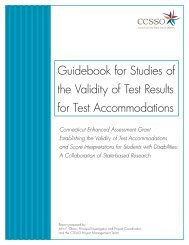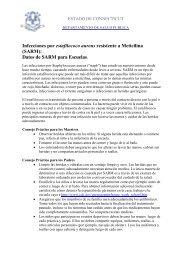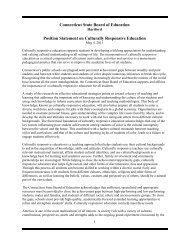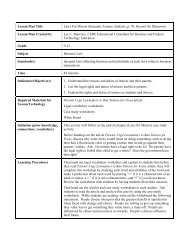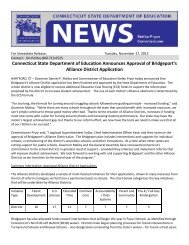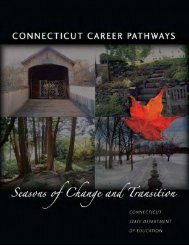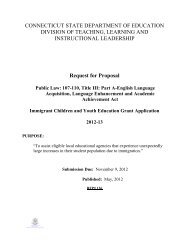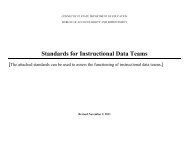Early Childhood - Connecticut State Department of Education
Early Childhood - Connecticut State Department of Education
Early Childhood - Connecticut State Department of Education
You also want an ePaper? Increase the reach of your titles
YUMPU automatically turns print PDFs into web optimized ePapers that Google loves.
Language And Literacy Development Chapter 5<br />
An environment where group and individual<br />
interaction is encouraged requires teacher support,<br />
including intentionally asking children to elaborate,<br />
responding to conversations and looking for ways to<br />
advance language development. In this environment,<br />
Teacher Strategies<br />
Assist and encourage children to retell stories and<br />
describe events.<br />
Assist those children who find it difficult to express<br />
themselves verbally.<br />
Use circle time as an opportunity for numerous<br />
language experiences.<br />
Promote higher-order thinking skills with activities<br />
that involve predicting, hypothesizing and analyzing.<br />
Provide opportunities for expanding vocabulary.<br />
74<br />
children are motivated to share and clarify their thinking<br />
with others. The skills <strong>of</strong> speaking, listening, reading<br />
and writing become the tools for children to share and<br />
represent what they are learning.<br />
Suggested Experiences<br />
Use questioning strategies to foster children’s thinking<br />
about:<br />
• detail – what, who, where;<br />
• sequence – what, when;<br />
• cause and effect – why, what would<br />
happen; and<br />
• character traits – who, why.<br />
Let the children take the lead in describing games,<br />
reviewing directions or rules.<br />
Create a puppet corner with commercial and classmade<br />
puppets. Encourage children to create their own<br />
puppets and provide opportunities for shows.<br />
Provide telephones and microphones in the drama<br />
area.<br />
Use songs, rhymes and stories frequently throughout<br />
the day.<br />
Listen when children are describing and telling, avoid<br />
changing their language, or only asking questions that<br />
require specific answers.<br />
Write class news with the children. Encourage<br />
children to extend and elaborate on events and projects<br />
happening within the classroom.<br />
Encourage children to observe, predict and analyze; to<br />
find answers to questions and share their findings.<br />
Take field trips, encourage families to come in and<br />
share experiences and talents.<br />
Introduce scientific and mathematical language at the<br />
water table, during project work and in the block area.



